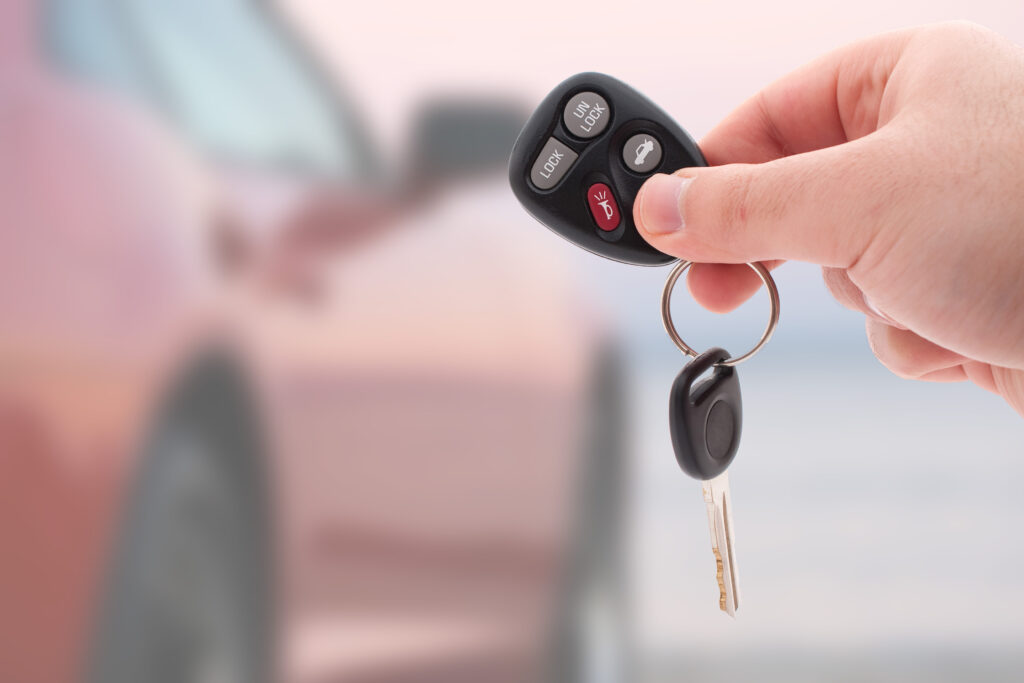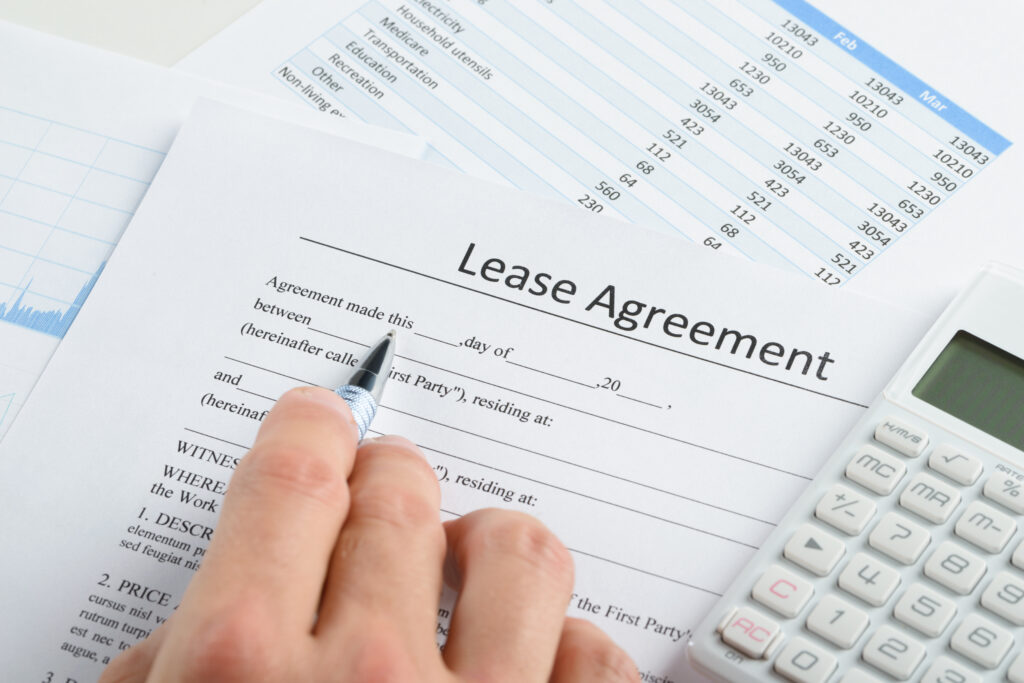Everyone is familiar with lease commitments and how they work, but many consumers who decide to lease automobiles don’t completely comprehend the process. Either they try it and the lease turns out to be a bad idea for them, or they hear negative things from others who have leased before and end up skeptical.
Table of Contents
Not Rent to Own
It is not a shock that some people are scared of getting a lease, even from reputable financial institutions. Commonly, people think of it as a scenario involving “rent-to-own”. Note that this is different then buying out your lease. Many well-meaning friends and peers who fancy leasing as another con may be misinformed themselves. If you have asked about leasing and been well-advised against it, you are most likely under the wrong impression. Before you write it off as a waste of time, it helps to learn more about the process and the way it very well could benefit you.
The concept of leasing as an interchangeable term for renting and rent-to-own is relatively accurate, with slight but significant distinctions. Leasing is among the most ancient concepts in the world of finance, and this term is related to business. Leases have been widely used worldwide for many different business purposes. Commercial buildings have been built on lease commitments, and thousands of retail businesses have started from scratch using leased apparatus and delivery vehicles. However, the very idea of leasing a car for family members or yourself may still be fairly new.
Vehicle leasing is quite different from rentals, and this difference is crucial to understanding what leasing is all about. A sufficiently informed customer will not make the same slip ups as somebody who is still of the opinion that renting is a direct synonym of leasing. Such lack of information will attract scammers and shady individuals who come up with the most perfect vehicle leasing deals with the intention of fleecing any individual who is naïve or inexperienced.
But trial and error is unavoidable if it’s your first time in any venture, and many individuals have learned their lessons the hard way. You will discover stories of people who have leased several cars over the years and are happy about it. These happy stories don’t get as much publicity as the stories about failed leases, but the message is clear: automobile leasing can be just what you are looking for if you want to save cash.
You can become a proud owner of a lease like other consumers who leased their cars rather than buy them. If someone you know had a negative experience with car leasing, there’s a chance that you won’t run into the same trouble because you know more about the process. If you’re informed of the dangers and you understand what you’re really paying or, you can obtain the top deals around and enjoy your high-tech, leased car.
Clearing Misconceptions with Better Information
Successful auto leasing entails understanding the process. Think of this as a business decision or an investment, and you’re halfway there. Preparation is the key to any successful venture. All your decisions will be accurate is you know the ins and outs of a deal.
Some of the gravest consequences of misinformation when it comes to leasing include getting cheated and overpaying for your car lease. Increasing your fundamental knowledge of leasing theories and knowing something about the cost of leasing can prevent you from running into these consequences. Some of the concepts you’ll need to remember when you sit down with your agent or dealer are here, so read on.
Leasing is a financing approach used by many individuals. The concept of leasing a car for yourself or for your family is similar to taking on a loan, but is very different from taking on an apartment lease. Consumer car leasing is completely different from car rentals. These distinctions are crucial because if you’re going to lease, you need to get in the mindset of another person who is buying the vehicle. Apartment leasing doesn’t require the same level of commitment or dedication because you don’t feel as invested. The same goes when you rent a car for several days.
You are not as eager to find the lowest possible price when you are renting a car, unlike when you lease a car. If you’re leasing a car, the sense of investment should be present. The difficult part is all about finding the top deals.
Some of the very best vehicle deals are taken up even before they are advertised for the reason that car producers offer financing alternative that improve loyalty of their customers. Leasing is a good alternative to buying a new car mainly because you can take your pick from the most high-end cars and even the latest luxury cars in the market. Many luxury vehicles are available to the majority of consumers only through a lease, because of the price limitation. The people who lease these luxury brands usually drive the most recent models.
What’s the logic behind this? Isn’t it more expensive to lease than to purchase? You will soon discover that leasing a new vehicle every other year is costly, and even more expensive than buying a good car and owning it after paying in full. But many people go for car leasing because they want to drive the cars that they can’t afford to pay money for. Thus, car leasing won’t necessarily save you money, but you can drive luxury vehicles or at least the most recent models by leasing.
What are the Major Benefits of Leasing?
• You get a new vehicle, which means you don’t need to expend money on heavy maintenance and there is always warranty for your vehicle.
• The car you’re driving is more luxurious and better-equipped to keep up with modern times than any old vehicle. Many car dealerships prosper because the people who lease are more loyal to them than buyers.
• Once you’ve “outgrown” your leased car, you can lease another one through the same dealership.
The price of the vehicle matters to someone who wants to lease it just as it matters to an individual who plans on buying the car. Thus, you should always negotiate for the best price. The retail price of the vehicles is one of the things that all dealers must tell their customers. More often than not, you as a leasing party don’t have to pay the full retail price. In general, you will have to negotiate a reasonable price for you or ask your dealer to look for a car that you can afford to lease. The rule of thumb is that, unless the deal is a special promotion (fixed price), negotiating for a better price is always possible.
If you are uncomfortable with the idea of haggling, you can always go for the special price that is being promoted on car websites. This is great if you have the time to browse websites and compare retail prices, or if you don’t mind driving around town to find local dealers who have the car you want. Leave your number and the dealer will confirm the final price with you on a later date. After you’ve done your window shopping, you can go back to your dealer and look at the offerings. The entire price of your lease will be dependent on the quote given to you by the dealer.
Why is the price crucial in this scenario?
After you and your dealer sign the lease contract and agree on the price, the dealer will sell the car to the company that leases the car at the price you agreed on. The financial company providing the lease will base your monthly payments on a low price. A very low initial lease price will mean lower payments on a monthly basis.
Who are the Players?
Keep in mind, the company providing the lease and the dealer providing the vehicle are two different entities
The truth of the matter is that you merely communicate with the company providing the lease after the dealer has handed over the car to you. Once you start using the car and paying every month, you are not likely to communicate with the dealer again. In this case, the dealer is the agent who helps with clarifying the regulations of the lease agreement with you. The company that leases the car can also act as an agent, but it is the dealer who usually does the tedious work of processing the papers.
The dealer usually gets a commission as the negotiator of the deal, and such a commission is paid by the company that is leasing the car to you. This is a commission of the dealer, which he receives from the financial company providing the lease. You will only have to talk to the dealer again if you have a problem with your vehicle; otherwise, you won’t really need to communicate with or contact the dealer anymore. All the fees and other payments you make from the time you start driving your car until your lease expires are to the company providing the lease.
Car producers use their own sister companies to provide vehicle leases to keep things simple. The formal term for these companies is “captive” companies that provide the leases. Sometimes, these companies are third parties that have merged with the bigger company. However, banks and other lending institutions can also function as leasing companies for the convenience of the consumers. These financial institutions find dealers and offer automobile lease commitments to banking clients. Dealers and banks often mutually benefit from these business deals.
Thus, the car you’ll be driving will be provided by an automobile dealer, but your lease (or payment plan) will be handled by a credit company, bank, or any financial company providing the lease. Therefore, you can take the initiative to find a third party that provides a leasing contract rather than use the company that the dealer recommends or is affiliated with.
Now that you know that the dealer and the leasing entity are usually not connected to each other, as a leasing customer, you can find a third party to obtain the lease from. Why? This is to obtain more beneficial (and cheaper) lease terms than what the dealer’s recommended company may provide. These independent leasing entities can arrange to get you a very low price.
However, many people eventually decide to use the dealer’s leasing subsidiary company for the reason that the dealer does all the paperwork to provide you with the car and the lease program. With the dealer’s help, you only need to meet with a representative of the company once or twice to set up all the paperwork for your new car. Moreover, the dealer’s captive leasing partner would probably offer special lease terms to help deliver the car you want to drive.
When you sign a lease contract, you are actually agreeing to the following:
• Payment of dues on a monthly basis
• Obtain and maintain sufficient insurance or coverage for your vehicle
• Be responsible for the payment of taxes for your vehicle
• Be the one to get a license for the vehicle
• Keep your vehicle in tiptop shape by regular maintenance
• Maintain the car for a specific time (usually 2 to 4 years) and to never prematurely end the leasing agreement.
The car will go to company that provided the lease at the end of the lease, and make sure that the car is in the best condition possible. Even the smallest damage to the vehicle will incur fees. Extra mileage, or mileage that goes over the limit that was established in your leasing contract, can also cost a lot.
Love Your Car and Want to Own it?
Some leasing companies offer the option to purchase at lease expiration. A price tag will be provided and the trusty car you’ve leased can be yours. But many car owners don’t go with the sentimental reasons for owning a leased car and simply use the car as a trade-in on a new car. The regular option is to hand over the vehicle to the company that leases the car and to find other options (such as leasing another car). However, you should be aware of any equity value in your vehicle. Otherwise, the financial company will be the one that benefits from the equity value of the car.
Thus, at the end of the lease, you have several options. You can return the car to the financial company providing the lease. You can purchase the car, or trade it. You can also choose purchase an extension for your lease. Each option has benefits and disadvantages, so carefully consider each one.
What You Need to Remember
If you are keener on leasing a car rather than buying one, some of the crucial things to remember are as follows:
• If you consider your short-term payments, your monthly cost for the lease is lower than the cost of purchasing a new vehicle. Lease payments on a monthly basis are always thirty to sixty percent lower than loan payments. Even if your purchase involved a loan at zero percent interest, your payments for the monthly lease are still low and affordable.
• The medium-term cost of leasing is relatively similar to the cost of buying. You are paying relatively the same price as a buyer who sells his vehicle as soon as he hands over the final payment of his loan.
• However, if you consider longer term payments, the cost of leasing is nearly always higher than the cost of purchasing a car. If a buyer drives his car to the ground long after the loan has been paid off and keeps the vehicle in good condition for the next decade or years, the cost of purchase can be divided by the number of years he keeps the car. Purchasing and using one car and driving it for ten years would cost less than taking out a lease for several different vehicles during the same period.
• But, if your main priority is driving the most suitable model of cars and not being forced to make do with the same car even when lifestyle and needs change, then leasing is better than buying.
Auto Leasing Conclusion
It is important to clear up misconceptions and gain better information when considering leasing a car. Many people confuse leasing with rent-to-own scenarios, leading to skepticism and hesitation. However, understanding the process and its benefits can help consumers make informed decisions.
Leasing a vehicle is not the same as renting or rent-to-own. It is a financing approach that allows individuals to drive a new car without the burden of heavy maintenance and with the benefit of a warranty. Unlike rentals, leasing provides an opportunity to drive luxurious and up-to-date vehicles, fostering loyalty between consumers and dealerships.
While leasing may not necessarily save money compared to buying and owning a car, it allows individuals to drive vehicles they might not be able to afford otherwise. Leasing offers the flexibility to switch to a new car every few years, and it can be a cost-effective option for those who prioritize driving the latest models.
Understanding the negotiation process is crucial when leasing a car. It is important to negotiate the best price possible, as it directly affects the monthly payments. Dealers act as intermediaries between consumers and the leasing company, receiving a commission from the leasing entity. However, consumers can also explore third-party leasing entities to obtain more favorable terms.
When signing a lease contract, individuals commit to making monthly payments, obtaining insurance coverage, paying taxes, licensing the vehicle, and maintaining regular maintenance. Any damages or exceeding mileage limits can result in additional fees.
At the end of the lease, there are several options available, including returning the car, purchasing it, or trading it in for a new vehicle. Each option comes with its own benefits and disadvantages, and careful consideration is necessary.
When choosing to lease a car, it is essential to keep in mind the cost implications. In the short term, lease payments are generally lower compared to purchasing a new vehicle. In the medium term, the cost of leasing is similar to the cost of buying. However, in the long term, leasing is usually more expensive than buying, especially if a buyer keeps a car for many years after paying off a loan.
Ultimately, leasing is a suitable option for individuals who prioritize driving the latest models and desire flexibility in their vehicle choices. By understanding the leasing process, debunking misconceptions, and seeking better information, consumers can make educated decisions about whether leasing is the right choice for them.





